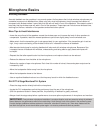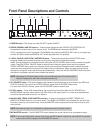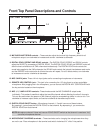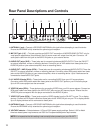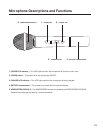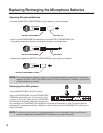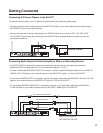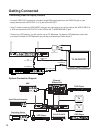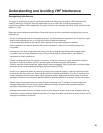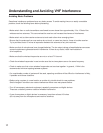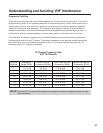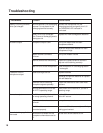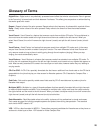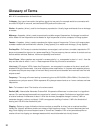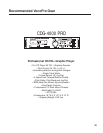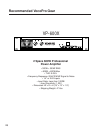
16
Understanding and Avoiding VHF Interference
Recognizing Interference
The ways of recognizing the type of interference present are observing the receiver LED indications and
carefully listening to the audio. A set of headphones can be a useful tool in isolating and analyzing
interference problems. With headphones it is easier to listen to one wireless channel at a time, even when the
system is in use.
Below are some interference descriptions. Most likely there is one that matches the symptoms that you are
experiencing.
• If there is interference when the microphones are off, and noise/distortion is present from the receiver output
when the microphones are on, try turning off all other wireless microphones.
If the interference problem is still present, there might be a direct radio interference problem.
Direct interference is a serious problem that must be corrected in order for the wireless system to be
fully usable.
• Interference in the form of low level-audio tones, whines, whining sounds whose pitch changes rapidly,
or audible voices or music (distorted or not) is likely to be caused by intermodulation, non-wireless
interference or direct interference.
• If there is interference when the receiver is turned on, in the form of buzzy or raspy whines with a distinct
cadence or rhythm that differs from time to time, digital interference might be the problem.
Common sources include computers, digital delays, effects processors, lighting controllers, and other digital
equipment using microprocessors and digital signal processors (DSPs).
• If there is no interference when the receiver is turned off and irregular popping, cracking or buzzing noises
on the audio with the receiver on, there may be electrical interference problems. This kind of interference is
usually caused by electric motors, neon lights, lighting equipment, appliances and other types of electrical
equipment. Electrical interference will generally affect all wireless systems at a location, not just one system.
• Certain types of buzzing sounds are actually due to interference from TV stations. If the buzzing sound
changes substantially at more or less random intervals and does not seem to be caused by electrical
equipment, the problem may be TV interference.
• Interference that takes the form of bursts of static or short bursts of noise is likely to be caused by lightning,
intermittent arcing or defective electrical machinery. This type of random interference is pretty rare but can be
among the most difficult to resolve.



